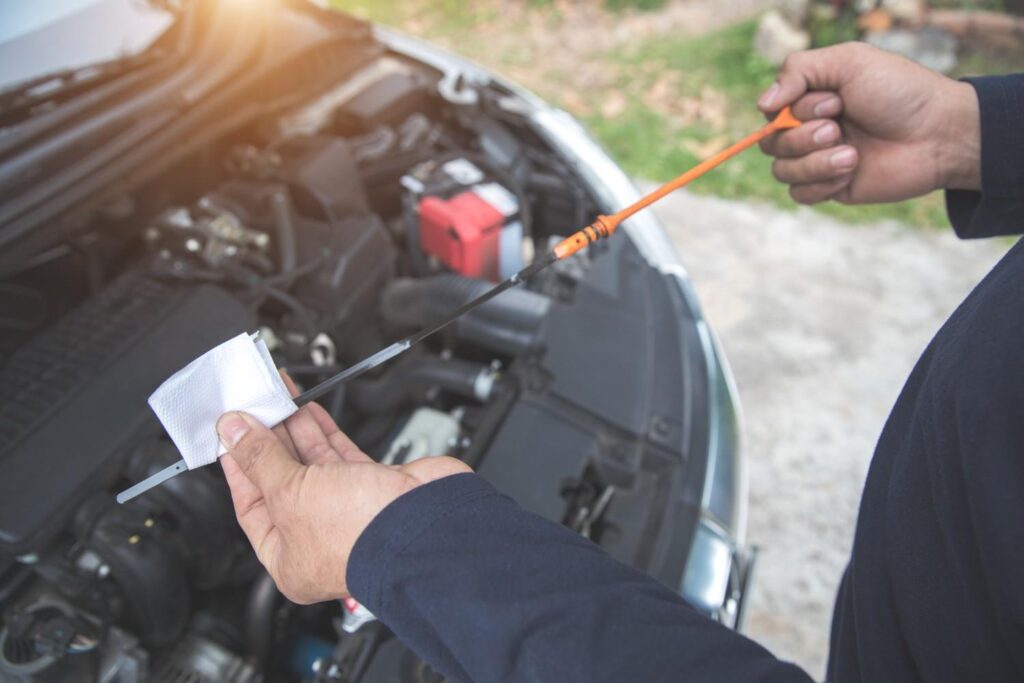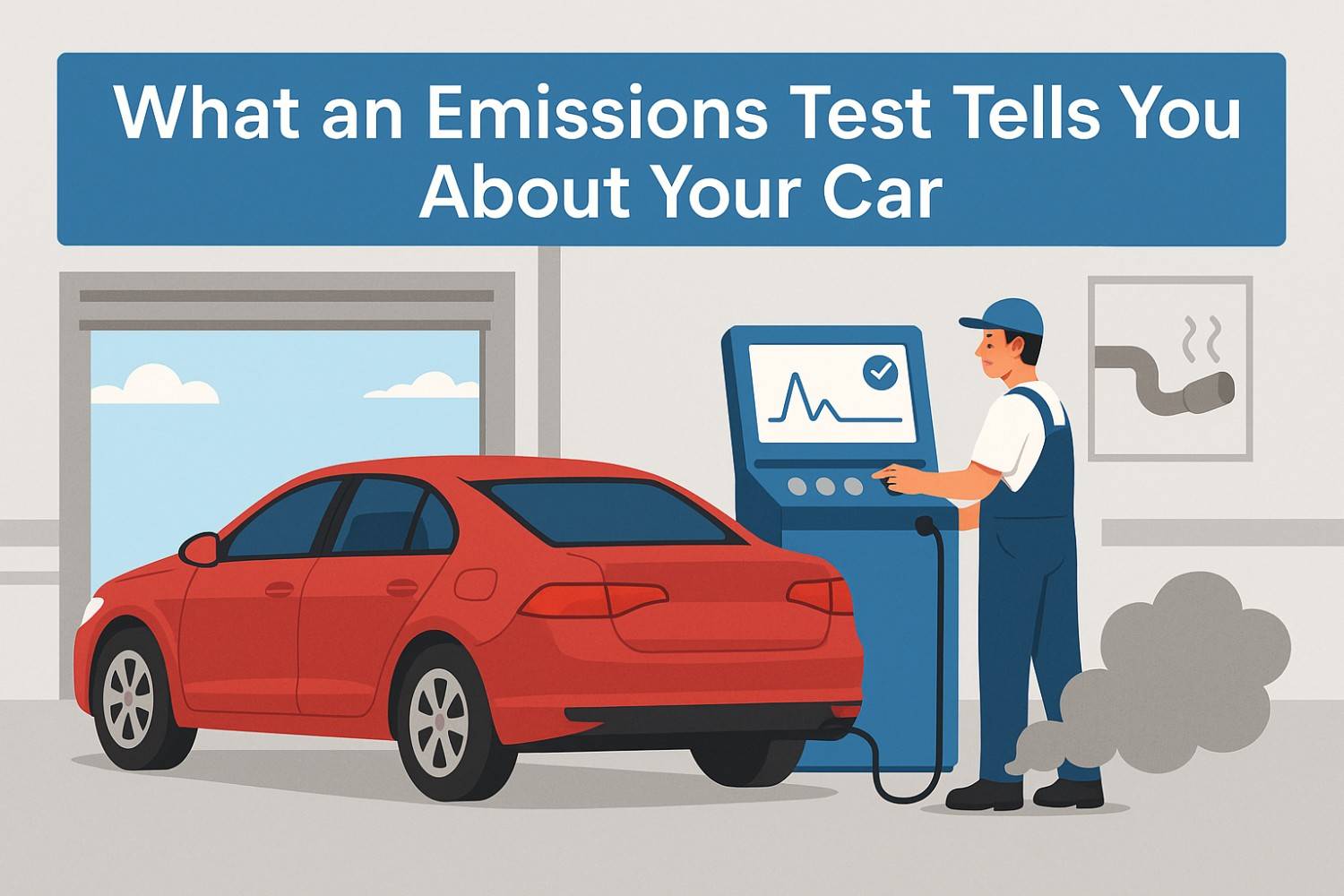An emissions test is vital for your car’s health and performance. Regular testing helps ensure vehicles run cleanly and efficiently, which reduces pollution and protects the environment. More than just verifying compliance with state regulations, an emissions test offers insights into your car’s overall condition and system efficiency.
What Is an Emissions Test?
An emissions test measures the pollutants your vehicle releases into the air, such as carbon monoxide, hydrocarbons, and nitrogen oxides, which can harm both the environment and human health. The test ensures your car’s exhaust emissions meet the limits set by environmental regulations. Often required for renewing vehicle registration, emissions testing also serves as an early warning system, identifying potential mechanical or performance issues before they lead to costly repairs. Passing the test confirms that your car’s engine and exhaust systems are running efficiently, reducing pollutants and improving fuel economy.

What the Test Can Reveal About Your Car
An emissions test can uncover several important details about your vehicle’s performance and health. Here’s what the results might indicate:
1. Condition of the Engine
High emissions often signal engine problems like incomplete combustion or worn components. Improper fuel burning can lead to excess carbon monoxide or hydrocarbons, often caused by dirty fuel injectors, faulty spark plugs, or poor air-fuel ratios. Identifying these issues early prevents reduced performance and fuel inefficiency.
2. Health of the Catalytic Converter
A catalytic converter is crucial for reducing harmful gases. If your car fails its emissions test in Provo, it often means the converter isn’t effective. A failing unit won’t properly convert carbon monoxide and hydrocarbons, leading to higher pollution. Repair or replacement ensures compliance with emission standards and maintains proper engine performance.
3. Efficiency of the Fuel System
The fuel system significantly impacts emissions. Issues like a faulty oxygen sensor, leaking fuel injector, or clogged filter disrupt fuel delivery, leading to imbalanced combustion. These problems show up in test results, indicating increased fuel consumption and higher emissions. Addressing them improves gas mileage and reduces environmental impact.
4. Function of the Exhaust System
Leaks or damage in the exhaust system can affect emission readings by allowing gases to escape before reaching the catalytic converter, causing inaccurate or elevated results. An emissions test can identify these issues, prompting an inspection to ensure exhaust gases are properly filtered and expelled.

Why Passing the Test Matters
Passing an emissions test benefits more than just the environment; it also indicates your vehicle’s mechanical health. A clean-running car operates more efficiently, lasts longer, and saves you money over time. Conversely, failing the test suggests issues with your engine, sensors, or filters. Ignoring these warnings can lead to further damage, reduced performance, and costly repairs. Passing the test also prevents registration delays and potential fines. Regular maintenance keeps your vehicle compliant and reliable.
Preparing for an Emissions Test
Before scheduling your emissions test, there are a few steps you can take to improve your chances of passing:
- Warm up your engine – Drive for 15–20 minutes before the test so your car reaches optimal operating temperature.
- Replace old spark plugs and air filters – Fresh components ensure clean combustion and better airflow.
- Check for warning lights – If the check engine light is on, have it diagnosed and fixed before your appointment.
- Use clean fuel and perform regular oil changes – Cleaner fuel and fresh oil help reduce harmful buildup in the engine.
- Inspect your gas cap – A loose or cracked cap can trigger system errors and increase emissions.
Taking these small steps before testing can make a big difference in both your results and your car’s long-term performance.

How the Results Benefit You
Emissions testing goes beyond compliance; it offers valuable awareness. Your results paint a clear picture of your vehicle’s condition. A passing score confirms efficient operation, while a failed test pinpoints areas needing attention. These insights help you plan maintenance, identify developing issues, and save money by preventing major mechanical problems. Prioritizing emissions testing gives drivers peace of mind, knowing their vehicles are both eco-friendly and mechanically sound.
Conclusion
An emissions test offers more value than many drivers realize. It serves as both an environmental safeguard and a health check for your vehicle. By assessing the condition of your engine, fuel system, and exhaust, it ensures your car remains efficient, compliant, and reliable. Regular testing not only helps reduce air pollution but also supports your vehicle’s performance and can save you money in the long run.






